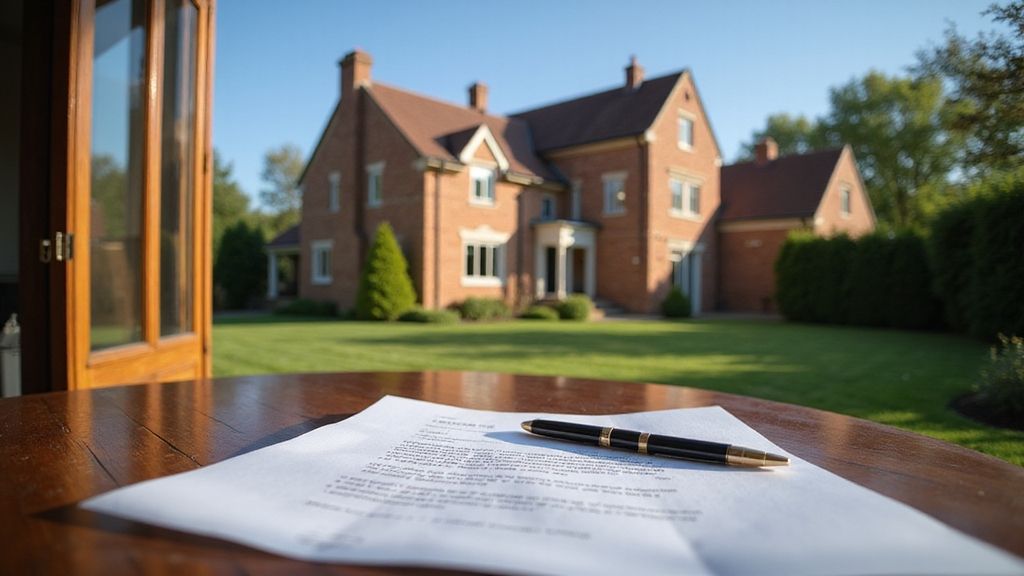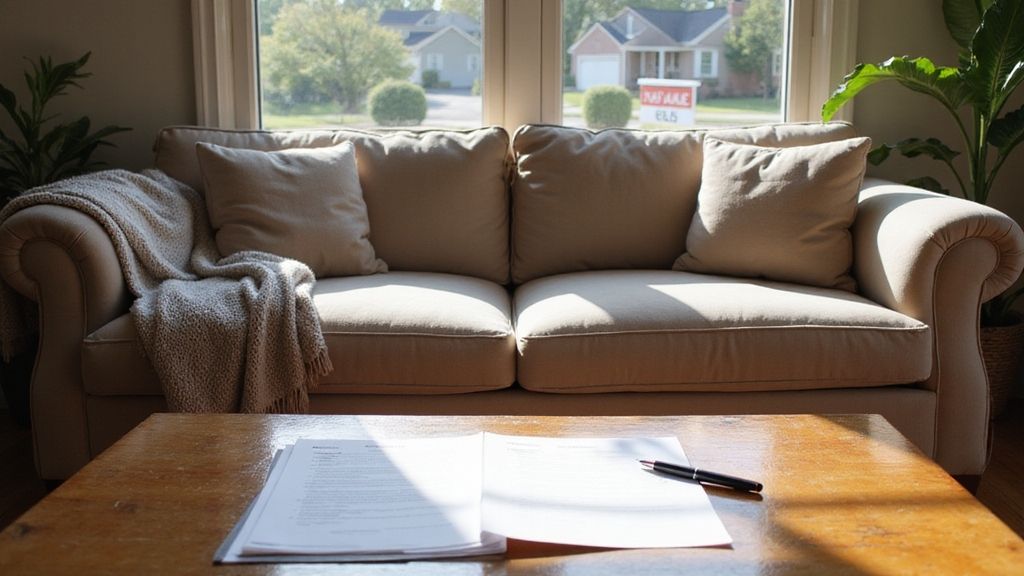Selling a Deceased Loved One's Home: A Comprehensive Guide for Executors and Heirs
Losing a loved one is a challenging experience, and navigating the process of selling their home can add a layer of difficulty. When selling a deceased loved one's property, executors and heirs face various emotional and practical challenges. This comprehensive guide provides step-by-step instructions on everything from understanding legal obligations to helpful tips for a smooth and successful sale.

Understanding Legal and Probate Requirements
After your loved one passes, you may have to go through probate, depending on how they set up their estate and your state’s laws. This process essentially allows the will to be contested by heirs and allows creditors to make any claims against the estate.(1) To begin, it is critical to begin the probate process by filing the necessary documents with the local court. This typically entails submitting a petition to open the estate, along with a death certificate and, if applicable, the deceased person's will. The court will appoint an executor or administrator, who will oversee overseeing asset distribution, including the sale of any property.
Once the probate process has begun, the executor will obtain an appraisal or valuation of the property. This valuation aids in determining the fair market value, which is necessary for determining a reasonable selling price. The property can then be listed for sale on the market, and any potential offers will be evaluated in accordance with probate laws. When a suitable buyer is found, the sale proceeds are typically used to settle any outstanding debts and distribute the remaining funds to the heirs or beneficiaries specified in the will or determined by intestate succession laws if there is no will. It is important to note that probate laws and procedures vary by jurisdiction, so seeking legal advice or consulting with a probate attorney is advised for a much smoother process.
Establishing Clear Ownership and Title
One of the first steps in selling the home of a deceased loved one is to confirm ownership and ensure a clear title. It may entail locating and delivering the necessary legal documents, such as the will, letters of administration, and any relevant court orders. If the property is owned jointly, it is critical to determine the rights of the surviving owner(s) and whether their consent is required for the sale.
Assessing the Condition of the Property
Perform a thorough inspection of the property before listing it. Determine any repairs, maintenance, or updates required to increase its marketability. It may include both cosmetic enhancements such as painting and addressing any major structural issues. A professional inspection can provide a comprehensive overview of the property's condition, which can help potential
cash home buyer Easton set realistic expectations.
Valuing the Property
Determining the fair market value of the property is an essential step in the sales process. Executors and heirs should consider getting a professional appraisal or consulting with a real estate agent familiar with the local market. The property's value will be influenced by location, size, condition, and recent sales of comparable properties. Accurate pricing is essential for attracting potential cash home buyer Easton and ensuring a successful sale.
Deciding Whether to Make Repairs or Renovations
Consider whether repairs or renovations are required to maximize the property's appeal after evaluating its condition. Focus on addressing issues that could turn off potential cash home buyer Easton, such as plumbing or electrical problems, roof repairs, or cosmetic upgrades. While significant renovations are only sometimes cost-effective, minor updates can significantly increase the property's marketability and overall value.
Choosing the Right Selling Strategy
Choosing the best
sell my house fast Easton strategy is critical to a successful transaction. Executors and heirs have several options, including hiring a real estate agent, selling the property independently, or considering auctions or direct sales to investors. Each method has advantages and disadvantages, such as timeframes, costs, and the level of involvement required. Consulting with a real estate professional can provide valuable insights into the best strategy for specific circumstances.
Addressing Emotional Attachments
Selling the home of a deceased loved one can elicit strong feelings and sentimental attachments. Before beginning the selling process, executors and heirs should allow themselves time to grieve and process their emotions. It may be beneficial to document cherished memories associated with the property and consider preserving meaningful mementos. It is critical in this process to strike a balance between honoring the past and planning.
Marketing and Showcasing the Property
It is critical to market the property to attract potential buyers effectively. Use professional photography, write a compelling listing description, and highlight the property's distinguishing features. Consider staging the home to create an inviting atmosphere for showings. Online platforms, social media, and traditional marketing channels can all be used to reach many potential buyers.
Navigating Negotiations and Offers
When offers begin to arrive, carefully review and evaluate each one. Consider price, contingencies, and the buyer's financial strength. Terms may need to be negotiated to reach a mutually acceptable agreement. Executors should consult with legal and financial advisors to ensure that the sale complies with all legal requirements and that the proceeds are distributed per the wishes of the deceased.
Completing the Closing Process
As the sale progresses towards closing, ensure all necessary paperwork is in order. It may include legal documents, disclosures, and required inspections or appraisals. Executors should work closely with the chosen method of sale (whether an agent or attorney) to coordinate all aspects of the closing process. Additionally, be prepared for potential delays or unforeseen circumstances that may arise.
Selling the home of a deceased loved one is a complex process that necessitates careful planning, emotional sensitivity, and adherence to legal requirements. Executors and heirs should approach the task with a clear understanding of their responsibilities and, if necessary, seek professional assistance. By following this comprehensive guide, you can confidently navigate the complexities of selling a deceased loved one's home, ensuring a smooth and successful transaction that honors their memory while facilitating a new chapter for all parties involved.
Give us a call anytime at 484-484-0971 or fill out this quick form to get started today!
Get A Fair Cash Offer On Your House

About the author
Mathew Pezon
Mathew Pezon is the founder and CEO of Pezon Properties, a cash home buying company located in Lehigh Valley, Pennsylvania. With several years of experience in the real estate industry, Mathew has become a specialist in helping homeowners sell their properties quickly and efficiently. He takes pride in providing a hassle-free, transparent, and fair home buying experience to his clients. Mathew is also an active member of his local community and is passionate about giving back. Through his company, he has contributed to various charities and causes.















